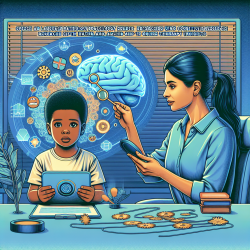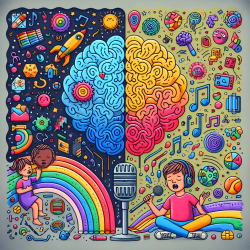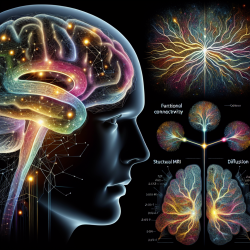In the ever-evolving field of speech-language pathology, data-driven decisions are paramount to creating optimal outcomes for children. A recent study titled "Cognition in anxious children with attention deficit hyperactivity disorder: a comparison with clinical and normal children" offers valuable insights that practitioners can leverage to enhance their skills and interventions. Here, we break down the findings and discuss practical applications.
Key Findings from the Study
The study compared cognitive features of children with anxiety disorders (ANX), ADHD, and a combination of both (ANX + ADHD) to those of normal controls. The results highlighted significant differences in academic functioning, emotional perception, and working memory among these groups. Here are some critical takeaways:
- Academic Functioning: Children with ANX + ADHD and ADHD showed significant impairments compared to normal controls.
- Emotional Perception: ANX + ADHD children were less sensitive to auditory perception of anger compared to those with only ANX or ADHD.
- Working Memory: Both ADHD groups demonstrated deficits in working memory relative to normal controls, with ANX children performing comparably to controls.
Practical Applications for Practitioners
Understanding these cognitive distinctions can guide practitioners in tailoring interventions more effectively. Here are some strategies:
1. Targeted Academic Support
Given the academic challenges faced by children with ADHD and ANX + ADHD, it is crucial to provide targeted support:
- Individualized Education Plans (IEPs): Develop IEPs that focus on the specific academic deficits identified in the study.
- Assistive Technologies: Utilize tools like speech-to-text software to help children with writing difficulties.
- Regular Assessments: Conduct frequent assessments to monitor progress and adjust interventions as needed.
2. Enhancing Emotional Perception
The reduced sensitivity to anger in ANX + ADHD children suggests a need for focused emotional perception training:
- Emotion Recognition Activities: Engage children in activities that help them identify and understand different emotions.
- Role-Playing Scenarios: Use role-playing to practice appropriate responses to various emotional cues.
- Parental Involvement: Educate parents on strategies to reinforce emotional perception skills at home.
3. Strengthening Working Memory
Working memory deficits in ADHD groups can be addressed through specific interventions:
- Memory Games: Incorporate games that challenge and build working memory, such as card matching or sequence recall.
- Structured Routines: Establish consistent routines to help children manage tasks and reduce cognitive load.
- Cognitive Behavioral Techniques: Implement techniques that help children develop strategies for remembering and organizing information.
Encouraging Further Research
While the study provides valuable insights, it also underscores the need for further research to replicate and expand upon these findings. Practitioners are encouraged to stay informed about the latest research and consider participating in studies to contribute to the growing body of knowledge.
To read the original research paper, please follow this link: Cognition in anxious children with attention deficit hyperactivity disorder: a comparison with clinical and normal children.










